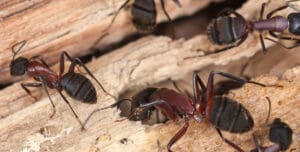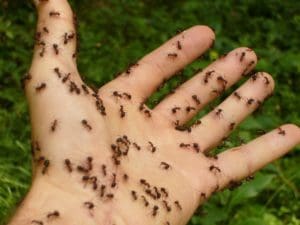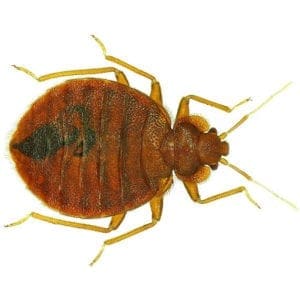

In Bergen County, NJ, Integrated Pest Management is more than just pest control—it's a strategic approach that harmonizes effective management with environmental preservation. With services like Bergen pest management, residents can trust that their pest issues will be addressed using sustainable and eco-friendly methods. Read on to learn how IPM techniques sustainably safeguard Bergen County homes and businesses.
Understanding Bergen Pest Management
Pest control in Bergen County, New Jersey must be tailored to its diverse ecosystems, which encompass urban, suburban, and agricultural areas, as well as a variety of plant and animal populations. The region's unique mix of city and suburban living environments demands a nuanced approach that addresses the different challenges each setting presents. In urban areas, pest control efforts might focus on managing rodents and insects that thrive in densely populated spaces, while suburban settings may require strategies to protect gardens and landscapes from garden pests, raccoons, and flying insects.
Agricultural activities in Bergen County also necessitate targeted pest control methods to protect crops from pests without harming the environment. Sustainable practices such as crop rotation, cover cropping, and the use of natural predators can effectively manage pests while preserving soil health and biodiversity. The diverse plant and animal populations in the county require careful consideration to ensure that pest control methods do not disrupt local ecosystems.
The significance of pest control in Bergen County lies in maintaining the balance between effective pest management and environmental preservation. Key principles include regular monitoring and accurate identification of pests, which are crucial for selecting the most appropriate control methods. Prevention through cultural practices, biological control using natural predators, and restricted use of chemical controls are integral to a sustainable approach.
Eco-Friendly Pest Control Practices
Eco-conscious pest control methods focus on sustainability and reducing environmental impact through natural and non-toxic strategies. Biological control plays a significant role by utilizing natural predators, parasites, and pathogens to keep pest populations in check. For instance, introducing ladybugs to control aphids or nematodes to target soil-dwelling pests can naturally decrease pest numbers. Cultural practices, such as crop rotation, companion planting, landscaping with pest-repellent plants, and maintaining garden hygiene, are also essential. Crop rotation disrupts the life cycles of pests, while companion planting repels harmful insects or attracts beneficial ones. Keeping gardens clean and free of debris minimizes breeding grounds for pests.
Mechanical and physical controls offer additional sustainable solutions. Barriers like row covers or nets prevent pests from reaching plants, while sticky traps and pheromone traps help monitor and reduce pest populations. Hand-picking pests or using water sprays to dislodge them are simple yet effective techniques. Organic pesticides derived from natural sources, such as neem oil or insecticidal soaps, provide a less toxic alternative to synthetic chemicals, degrading more quickly and posing less risk to non-target species and the environment.
Benefits of Sustainable Pest Control
Sustainable pest control offers numerous benefits, emphasizing health and environmental wellness through eco-friendly and integrated pest management (IPM) strategies. One of the primary advantages is the reduction of chemical pesticide use, which minimizes exposure to harmful substances for humans, pets, and wildlife. This reduction lowers the risk of pesticide-related health issues, such as respiratory problems and skin irritations, promoting a healthier living environment.
Eco-friendly pest control methods, such as biological control, leverage natural predators and beneficial insects to manage pest populations. This approach not only effectively controls pests but also supports biodiversity and enhances ecosystem resilience. By maintaining a balanced ecosystem, these methods prevent the overpopulation of any single pest species, reducing the likelihood of severe infestations.
IPM combines multiple strategies, including cultural, mechanical, biological, and chemical controls, to achieve long-term pest prevention. This holistic approach reduces the dependency on chemical pesticides, thereby decreasing soil, water, and air pollution.
Integrated Pest Management in Bergen County Explained
Integrated Pest Management is a sustainable approach to pest control that focuses on long-term prevention and minimal environmental impact. For Bergen County, IPM is particularly significant due to the region's diverse ecosystem, residential areas, and agricultural activities. Implementing IPM in this area involves a multifaceted strategy that combines biological, cultural, physical, and chemical controls. Key principles of IPM in Bergen County include:
- Monitoring and Identification: Regular monitoring helps identify pest populations and their growth stages. Accurate identification is crucial to choose the most effective control methods.
- Prevention: This involves cultural practices such as crop rotation, proper sanitation, and selecting pest-resistant plant varieties to minimize pest attraction and breeding.
- Biological Control: This utilizes natural predators, parasites, and pathogens to control pest populations. Encouraging beneficial insects like ladybugs and lacewings can naturally reduce pest numbers.
- Physical and Mechanical Control: Methods like hand-picking pests, using barriers, traps, and employing mulch to prevent weeds and soil-borne pests.
- Chemical Control: When necessary, the use of pesticides is done in a targeted and sparing manner. Preference is given to products with low toxicity and minimal environmental impact.
Range of Pest Management Services
Pest control services in Bergen County encompass a wide range of solutions designed to meet the diverse needs of residential and commercial venues alike. Residential pest control services typically address common household pests such as ants, roaches, rodents, termites, bed bugs, and mosquitoes. These services often include comprehensive inspections, customized treatment plans, and follow-up visits to ensure long-term pest management.
For businesses, pest control services are tailored to the specific requirements of different industries. Restaurants and food processing facilities, for instance, require strict pest management in order to comply with health regulations and maintain food safety standards. Pest control professionals in these settings focus on eliminating pests like flies, rodents, and cockroaches that can contaminate food and harm the establishment's reputation. Office buildings, retail spaces, and other commercial properties benefit from pest control services that address common issues such as rodents, insects, and occasional invaders. As with residential services, commercial pest control services include regular inspections, preventive measures, and targeted treatments to maintain a pest-free environment. IPM strategies are often employed, combining biological, mechanical, and chemical controls for effective and sustainable pest management.
Additionally, specialized services are available for unique situations, such as wildlife control, termite inspection and treatment, and bed bug extermination. Pest control providers in Bergen County are equipped to handle a wide array of pest issues, ensuring the health, safety, and comfort of both residential and commercial clients.
Choosing Pest Management Service in Bergen County
Selecting a reliable pest management service provider is crucial for effective and sustainable pest control. Start by researching companies with a solid reputation and positive customer reviews. Look for providers that are licensed and certified, ensuring they meet state and local regulations. A reputable company should also have experienced and well-trained technicians who understand the latest pest control methods and technologies. Inquire about the company’s approach to pest management, favoring those that use IPM strategies. Ask if they offer eco-friendly and low-toxicity solutions, which are safer for your family, pets, and the environment.
Transparency is key, so choose a provider willing to explain their inspection process, treatment plans, and follow-up services. They should provide a detailed estimate and outline the costs involved without hidden fees. Additionally, a reliable pest management service should offer guarantees or warranties for their work, ensuring they stand by their treatments and will address any recurring issues. Opt for a company that is responsive and attentive to your concerns, and finally, seek recommendations from friends, family, or neighbors who have had positive experiences with pest control services.
Whether you’re looking for family-safe residential pest control or industry-tailored commercial pest control, Twin-Boro’s IPM strategies ensure effective and eco-friendly pest management across all 70 of Bergen County’s municipalities. With the help of Bergen pest management, we provide top-notch services that are both effective and environmentally conscious. Contact us today to discover how we can safeguard your property with sustainable practices and expert care.






